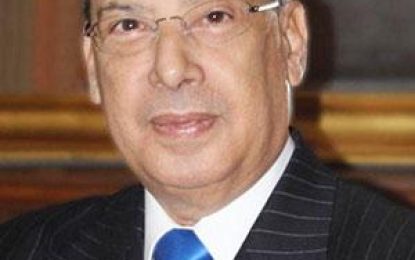Latest update February 1st, 2026 12:40 AM
Latest News
- Despite higher production… Guyana recorded lower oil revenues in 2025 as price declines
- WIN to meet opposition GECOM commissioners today
- Banks DIH to appeal injunction on share ownership by-law – Chairman
- Children among 31 Palestinians killed by Israeli forces across Gaza
- Exxon extends contracts for four drillships operating in Stabroek Block until 2029
Marudi residents’ protest…Rescind mining agreement and apologise to Indigenous People – Caribbean Human Rights lawyer
Nov 30, 2021 News
“There is an urgent need for Guyana to comply with this obligation to protect the Wapishana people’s rights and to ensure that any activities that are proposed for their territories must be done in conformity with the International Laws.”
Kaieteur News – The controversy over government’s recent signing of an agreement with a Canada-based gold company, without consultations with the Indigenous People who are the traditional owners of the land in Marudi, has attracted the attention of a Caribbean Human Rights lawyer. The lawyer believes that the incumbent administration should not only apologise to the locals but rescind the contract until the required processes are followed.
The Human Rights lawyer, Malene Alleyne, is the holder of a Master of Laws from Harvard Law School and a Master of Advanced Studies from the Graduate Institute of International Studies, Geneva. She received her Bachelor of Laws from the University of the West Indies, Cave Hill, and a Bachelor of Arts from Eckerd College. She is qualified to practice law in Jamaica, having received her Legal Education Certificate of Merit from the Norman Manley Law School.
Alleyne is also the founder of Freedom Imaginaries, an organisation that uses rights-based strategies to imagine and build a truly post-colonial world. In an interview with this newspaper on Monday, the lawyer said that she was deeply shocked and alarmed over the recent agreement to resume mining on the Marudi Mountains.
“My understanding is that this was done without any participation or consent from the Wapishana people and they are the traditional owners of this land,” she explained.
The Human Rights lawyer was keen to note that under Intentional Human Rights Laws, Indigenous people, such as the Wapishana tribe, have a right to free, prior and informed consultations and consent.
According to Alleyne, “This right requires the state to accept and disseminate information. It also entails constant communication between the parties. The state should have ensured that the Wapishana people were aware of possible risks before entering into an agreement to develop projects on their lands.”
In fact, she noted that information should have been shared with the land owners pertaining to environmental and health risks. “This is essential so that any consent that is given by the Wapishana people is informed, so they give their consent knowingly and voluntarily,” Alleyne said.
Additionally, the Human Rights lawyer pointed out that another requirement is that these consultations must be in good faith, with the objective of reaching an agreement which must be in accordance with the Wapishana people’s own traditions.
As a matter of fact, she said that the consultations of such nature must take place at the early stages of the proposal.
Even though these are all requirements enshrined in International Human Rights Laws, she said these were not met. “I understand that there was a meeting on Saturday for example with members of the Cabinet, but this took place after an agreement was already signed, and this agreement is one which allows companies to come into their territory and hunt for gold. I have read complaints that Indigenous communities were not even given adequate notice of the meeting and the people who attended were denied an opportunity to raise their hand (ask questions), so this is basically a failure to comply with basic standards for consultations in these cases,” she noted.
As a consequence, the lawyer said that she stands in solidarity with the Indigenous People even as she called on government to apologise, having violated the rights of its people.
In addition to this, she called for the project to be put on hold, until the villagers are properly consulted and have a full understanding of the project, including the potential risks and benefits.
“An apology is necessary…I stand with the Wapishana people and demand that the ministry of Natural Resources rescind the mining deal on Marudi Mountain and carry out meaningful consultations with the people,” she posited.
The lawyer was keen to note that only in 2018, the United Nations Committee on the Elimination of Racial Discrimination called on Guyana for the suspension of the mining project on Marudi Mountain until free, prior and informed consent is granted by the Wapsihana people, following full and adequate discharge of the duty to consult.
“There is an urgent need for Guyana to comply with this obligation to protect the Wapishana people’s rights and to ensure that any activities that are proposed for their territories must be done in conformity with the International Laws,” she advocated.
On Saturday, Cabinet members rushed into South-Rupununi, following stanch criticisms on social media, following the inking of an agreement between the Ministry of Natural Resources and the Canada-based gold company to prospect the land, without prior consultations with residents.
The visiting delegation included Minister of Natural Resources, Vickram Bharrat, Minister of Home Affairs, Robeson Benn, and Minister of Amerindian Affairs, Pauline Sukhai. Officials from the Guyana Geology and Mines Commission (GGMC) were also present.
At the conclusion of the meeting, several villagers complained to this newspaper that they were not allowed to ask questions, as the team was rushing to another meeting. This caused the villagers to become even more upset as they felt that they were disrespected.
In fact, Youth Chairperson on the South Rupununi District Council (SRDC), Joshua Fredericks complained to this publication that they were given inadequate notice of the meeting Saturday and vague responses were given in relation to resolving the impacts of the mining activities.
Fredericks said that because villagers are ignorant of what the mining companies were permitted to do, they are also clueless as to how their livelihood can be affected, given that they are heavily reliant on farming and animal rearing.
“We want to protect our land and our sacred sites, our natural forests, and we are looking at the negative impacts this thing can have. Also we know that it can be positive. We are not against the mining but we’re upset about the way they are carrying about their selves. It is in a manner that is disrespectful to our rights as Indigenous People,” he pointed out.
The Youth Chairperson was keen to note that the village is completely dependent on natural water sources. Against this background, he expressed fear as to what could happen to the people, should the river become polluted as a result of the mining activities.
Discover more from Kaieteur News
Subscribe to get the latest posts sent to your email.
Similar Articles
Listen to the The Glenn Lall Show
Follow on Tik Tok @Glennlall
Your children are starving, and you giving away their food to an already fat pussycat.
Sports
Feb 01, 2026
2026 West Indies tour of South Africa T20I 3-Match Series Game 3 – Hope (48), Hetmyer (48), Motie (3-17) help seal 6-run win (DLS) Kaieteur Sports – West Indies wrapped up what was an...Features/Columnists
Feb 01, 2026
(Kaieteur News) – In 2023, when the Guyana Manufacturing and Services Association (GMSA) urged the removal of VAT on a range of locally produced goods, such as data services, chowmein, guava cheese, it was reminded, correctly, that international and regional trade rules do not permit the...Sir. Ronald Sanders
Feb 01, 2026
By Sir Ronald Sanders (Kaieteur News) – When the door to migration narrows, the long-standing mismatch between education and economic absorption is no longer abstract; a country’s true immigration policy becomes domestic — how many jobs it can create, and how quickly it can match people to...The GHK Lall Column
Feb 01, 2026
Hard Truths by GHK Lall (Kaieteur News) – Pres. Irfaan Ali and his PPP Govt. are looking worse by the day, development. On many issues of national importance, the president and his group of governors have faltered heavily, limped along unsteadily, retreated from fearfully. I pick a few only,...Publisher’s Note
Freedom of speech is our core value at Kaieteur News. If the letter/e-mail you sent was not published, and you believe that its contents were not libellous, let us know, please contact us by phone or email.
Feel free to send us your comments and/or criticisms.
Contact: 624-6456; 225-8452; 225-8458; 225-8463; 225-8465; 225-8473 or 225-8491.
Or by Email: glennlall2000@gmail.com / kaieteurnews@yahoo.com













